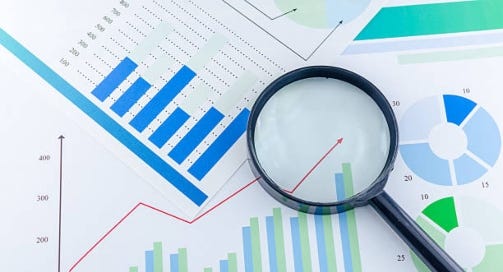In an era where information is abundant but difficult to vet and understand, the depth and quality of our knowledge determines whether we succeed or fail.
This principle is exemplified in the story of an anonymous trader, dubbed the “French Whale,” who stunned financial and political observers by betting tens of millions of dollars on Donald Trump to win the recent presidential election. The sheer size of the wager alone made waves, moving betting markets substantially and setting off a run of bets on Trump.
Pundits and pollsters scrambled to analyze the French Whale’s position, speculating on what inside information may have informed his wager. Many of these experts wondered if the whale was relying on internal campaign data, private exit polls, or a previously unseen trend. Still others dismissed the bet as reckless speculation.
When the dust settled and the election was called for Trump, the French Whale emerged with estimated winnings of at least $40 million—possibly much more. This intensified the fever of experts’ questions about the bet. How did he know, they asked? What was his secret?
The secret to the French Whale’s success, which he revealed shortly after the election, was simple, yet profound in its implications. Instead of relying on direct polling data—which is often plagued with social desirability biases, and, notably, had badly underestimated Trump’s electoral performance in both 2016 and 2020—the bettor used a different approach. He commissioned a poll that asked voters a similar but vitally different question: “Who do you think your neighbors are voting for?”
The results of the poll were overwhelmingly in favor of Trump.
This makes sense. People may temper their own opinions out of fear of judgment when asked who they will support. However, when asked to project onto others, they are often more candid, sharing observations that may reflect broader truths. By leveraging this unconventional data point, the trader gathered insights that bypassed the common biases of self-reporting and tapped into the true undercurrents of public sentiment.
The poll hinted at the essential fact of the election, which became crystal clear on election night: most people believed their fellow Americans were deeply frustrated with the state of the country and would be inclined to vote for the candidate that promised dramatic change. Even though respected pollsters conducted dozens of polls in the final months of the campaign, all that data did not capture this different, crucial perspective on the race.
The lesson is powerful: a large amount of data, even from experts, does not guarantee a high quality of information. Instead, it is necessary to have data that looks at the problem from a variety of perspectives, rather than looking repeatedly through the same framing and feeling more confident when you get similar results.
To cite the incredibly common example of correlation not equaling causation: a researcher could collect data showing that, every single year for the past 50 years, ice cream sales and homicide rates spike simultaneously. However, that massive amount of data would not capture the key perspective on the issue: that both ice cream sales and homicides increase in the summer months.
Simply collecting as much data as possible and drawing conclusions from it may overlook bias that distorts what is really going on. The French Whale didn’t have more data than the pollsters who questioned his wager—but he had a very different perspective that allowed him to see what most experts could not.
This example contains a decision-making lesson for all of us, whether in business, investing, or social dynamics. Don’t take everything at face value, even hard data. Consider who is sharing it, how it is collected, and where bias might creep in. If knowledge is power, then today, better data is power. And better data comes from asking better questions, challenging assumptions, and seeking different perspectives.
The story of the French Whale shows that, in an information-saturated world, challenging conventional wisdom and discerning the signal from the noise can make all the difference.
Quote of The Week
"It is not the quantity of knowledge that matters, but the quality. Some people know a lot, but don’t really know what’s useful or important.” - Leo Tolstoy
New For Premium Subscribers




Absolutely LOVE this one! Very insightful! Such an interesting way to get people to express their true opinions. Another very simple one would be: "Do you feel you are better off now than 4 years ago?" . That Ice cream Homicide rate / correlation vs causation example has been burned on my brain since my Sociology 101 college class. Love it.
Very very instructive insight .